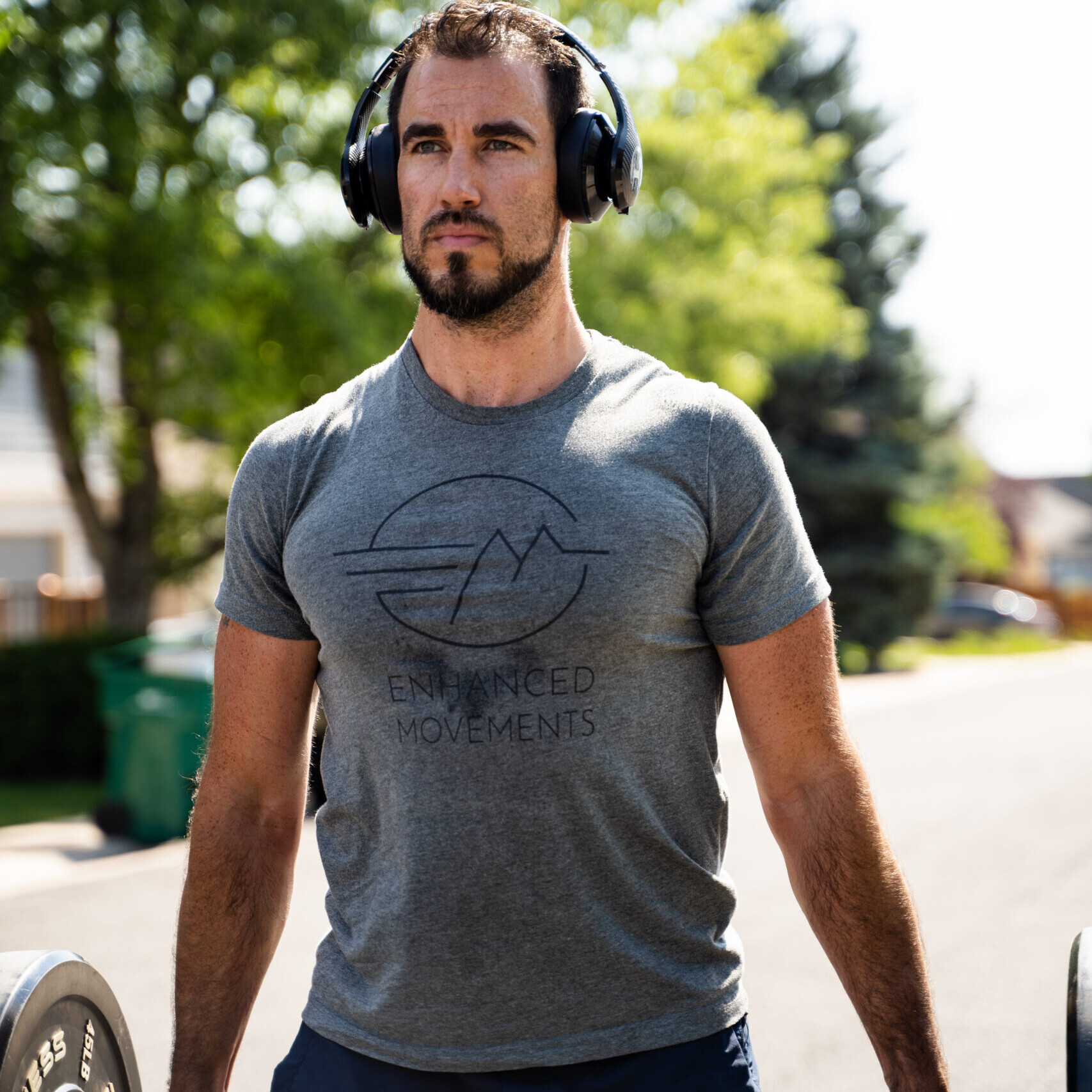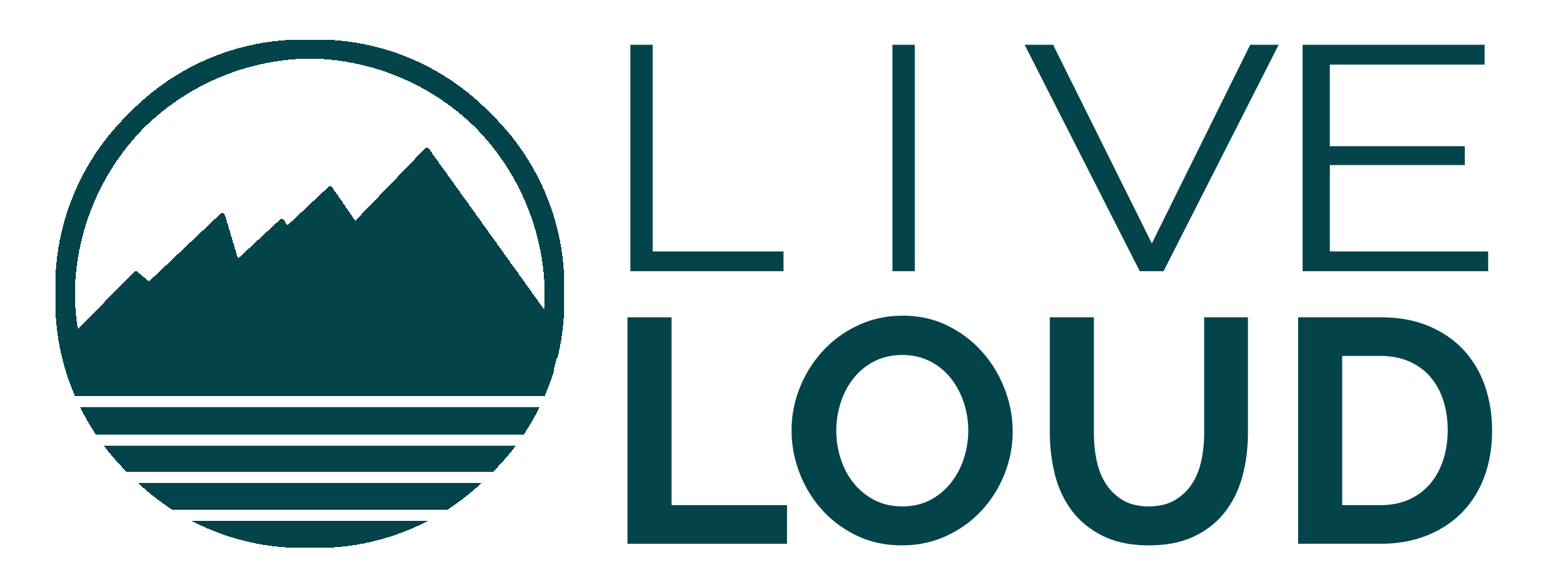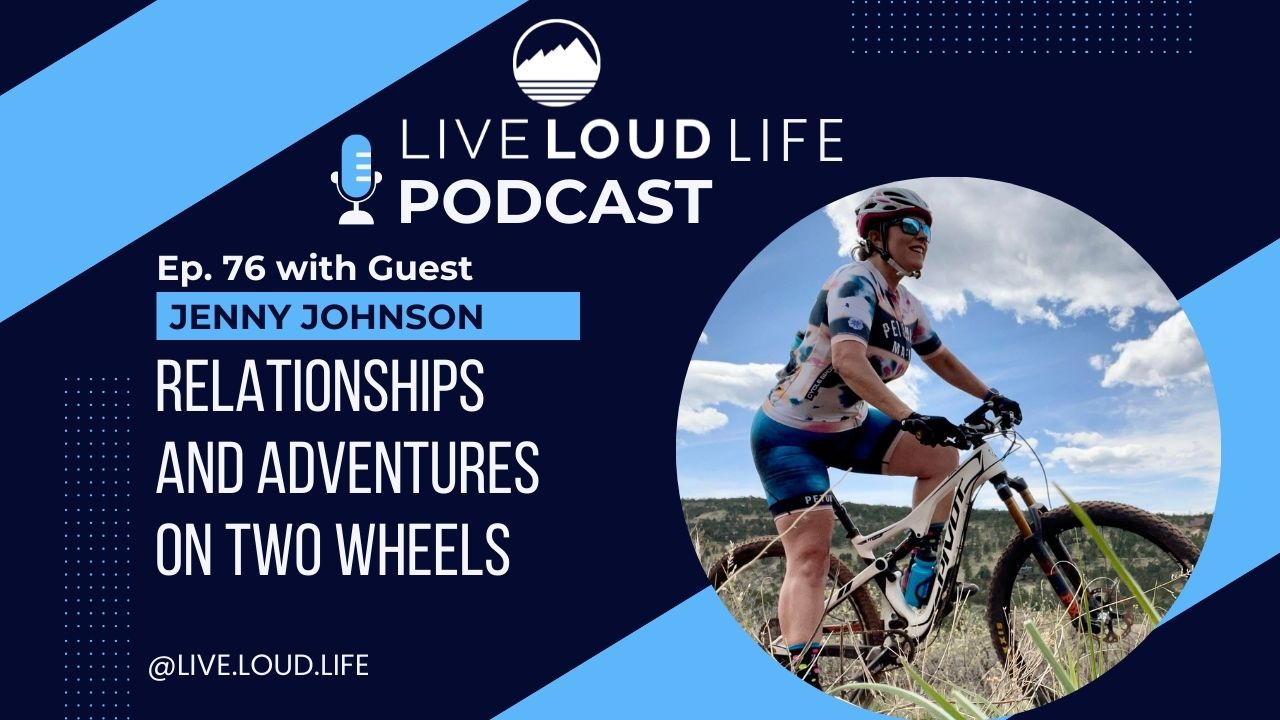Live LOUD Life PodcastLafayette Colorado
Episode 81
When Your Strength Becomes a Weakness
With Dr. Antonio Gurule
Welcome back to another episode of the Live Loud Life Podcast! In this episode, Dr. Antonio Gurule discusses When your Strengths Become a Weakness. Through this discussion, Dr. Antonio will share personal insights to his own life-journey as well as key considerations for identifying your own personal weaknesses before exploring how to overcome weaknesses and gaps with the proper support.
Episode Highlights:
- [02:22] Susceptibility to re-injure
- [04:41] Identifying Potential Weaknesses
- [07:23] Using adaptability to be too casual
- [10:49] Diverting Attention Dilutes Progress
- [12:00] Seeking Support to Overcome Weaknesses
About Dr. Antonio Gurule

Background:
- Father
- Doctor of Chiropractic
- Owner of Live LOUD
- Personal Trainer & Health Coach
Check Out Some of Our Other Blog Posts and Podcast Episodes
When Your Strength Becomes a Weakness
[00:00:00] Dr. Antonio Gurule: What’s up guys? Welcome back to another episode of the Live Loud Life podcast. My name is Antonio, your host of the Live Loud Life podcast. Um, couple short, housekeepings, whatever you wanna call that. I can’t remember. It’s been a few weeks since I’ve honestly, uh, recorded anything. We, um, we’ve been doing a lot of, um, Outdoor backyard projects, uh, which I’ll give you a sidebar for that too.
[00:00:31] But this dang chicken coup I’ve been building for, I swear it was like months now that is finally finished. The chickens and the ducks are in their new home. They’re happy as can be. Uh, we have two, um, compadres, two males that are, that have been a little mean and bully-ish so they’re off to the side. But anyways, that is completed, um, which is fantastic.
[00:00:52] Um, for those of, I think I said this in the last one, I can’t remember from when we announced it, Uh, but we’re expecting baby number four, which is crazy. This is a surprise for everybody, but we’re very, um, amped, so we’re adding a another little regret to the live loud, uh, Gurule clan, which is gonna be fantastic.
[00:01:11] Come March. Late February, early March of next year. Uh, we may have three birthdays in March. Uh, everyone’s telling, uh, Michelle and I to keep our hands off of each other in June. Apparently there’s something going on there. Um, but that’s quite exciting and to not, and to add anymore onto that, we decided to get a puppy.
[00:01:31] We’re getting a new puppy at the end of October of this year, and, uh, the kids and I are just so amped about that. Uh, it was a funny story about that. Um, Michelle doesn’t recall it as such, but I recall it just as this was, I was originally, um, hoping for just three kiddos and she really always wanted four, and so she basically made me a deal that said if we have a fourth child that I get to have the puppy that I’ve been wanting for a few years.
[00:02:00] And lo and behold, baby’s not coming. So puppy’s coming. But we figure now’s a good time to, you know, do the early training before baby comes. Cuz I feel like getting a puppy afterwards in training would be a lot more difficult. Um, so that’s all, that’s new in our life. Uh, hope everyone’s doing, uh, well, we’re trying to keep ourselves busy.
[00:02:17] Oh, the side part. So, um,
Susceptibility to re-injure
[00:02:22] Dr. Antonio Gurule: This is not what the topic is today, but it’s kind of like a sidebar. Cause I had someone else coming in with back pain and you know, they’re very active and they had fallen hunting and they hurt their back again and kind of fr and, and, and they didn’t necessarily go as far through our little back program as I’d wanted.
[00:02:38] They kind of, uh, decided to go their own round and get back into CrossFit and other things, which was fine. They were doing okay, but. The frustration was like, Why do I keep hurting my back now the number one cause of injury, previous injuries, if you have hurt yourself before, you’re more susceptible to just hurting that area.
[00:02:54] Again, it’s unfortunate, but it is what it is. Now, obviously we would go through an extensive amount of rehab and training and strengthening to mitigate that risk. Um, but that does unfortunately make you slightly more susceptible. Now we wanna build resilience around that to reduce that susceptibility.
[00:03:10] And that’s what I’ve been suffering. I mean, there’s, I do a lot of conditioning and resistance training and core training and, and understanding obviously the principles about how to better, uh, stabilize. But I also know that I have my shortcomings on things that I should be working on. Slight with more, um, mobility in certain areas, but also some more odd object.
[00:03:30] Training, uh, an odd object kettlebells might be included in that, but we’re talking about like sandbags and, and um, stones and medicine balls and different things like that which force you to learn how to leverage and move your body in unique different positions and holding on objects. Now, I would say I feel fairly comfortable about doing a number of odd objects, but.
[00:03:52] I’ve been suffering some from some low back pain over the last week or so because of all the odd object lifting and all the bending over I’ve been doing from, from, um, you know, uh, putting up post and, and lifting up fences and just a number of different things and it just caught up to me. Now it’s nothing that’s bad or debilitating.
[00:04:11] Good thing. I know the things to do to help wipe out and clear that as fast as possible. But I just wanted to add that as a little caveat is sometimes we get frustrated by these nagging injuries because we’ve had substantial injuries in the past that we either haven’t adequately rehabbed or or, or gone through, or we’ve kind of fallen off the wayside of what had been working previously to help us, and then we kind of get back into those old patterns now it kind of segues into this next, next topic.
Identifying Potential Weaknesses
[00:04:41] Dr. Antonio Gurule: Because, uh, the topic is, um, when your strengths can actually become, um, a weakness or a deficit to use, right? So, That segue is we get comfortable about kind of what’s going on and, and, and we’re finding like, Hey, I feel good about this and so I don’t need to direct so, so much time and attention to that which, which I would argue and validate that that would be, that would be true, but sometimes we use that strength as a crutch.
[00:05:05] Like, I’m okay because. This is strong to me, but, uh, and there’s, there’s a lot of talk about this where there’s, there’s one caveat that talks about triple down on your strengths, right? If you’re good at this, don’t do the things that you don’t need, that you don’t need to do, you’re not good at, because you’re really good at this.
[00:05:22] Now, from a business standpoint, And, and, and, and maybe communication standpoint, relationship standpoint, that makes sense. Um, but more so from just a general business standpoint, but from like a health and wellness standpoint, that doesn’t really make sense cuz there’s weak spots that obviously need to be addressed.
[00:05:38] Right? And, and what I have been realizing and trying to be more honest with myself is I have been using my quote unquote strengths as an excuse for certain things. Now this goes beyond the just health. Side of it, maybe in the wellness side, but from the business side. But this is, this is also just from a, we’ll just say a general more global behavioral side, right?
[00:06:03] So one of my, and, and we have taken a number of, uh, um, personality tests, strength tests, um, Colby Index, strength finders, minor Briggs, you know, all those different things. I’ve taken all them over the years. Um, uh, and what I have found from, you know, when I’m, look, when you’re looking at all those, Uh, I’m an initiator.
[00:06:26] I’m an activator. I have, I’m very high in adaptability. Um, low, lower on research and strategies, kind of in the middle, but my, but my flow tends to be. You got an idea, Let’s go. Oh, that didn’t quite go the way we wanted to. Let’s, let’s shift laterally over here, which there’s, there’s obviously huge pros to that, but there’s, there’s a lot of cons to that because there’s not as much maybe strategic implementation.
[00:06:54] And that’s the thing that I’ve been, this is a sidebar for another show that’s something I’ve been struggling with is while I do set goals, I struggle to set goals. Um, and because. I feel that the adaptability, the adaptable side of me does not like being pinpointed to one thing because I like being able to shift and, and understanding that the goals can be bigger than that.
[00:07:18] There’s multiple roads in Rome and understanding that there will be constant shifts in navigations. Right.
Using adaptability to be too casual
[00:07:23] Dr. Antonio Gurule: But I’ve been using this quote unquote “adaptability” to, to be too casual. Uh, I was listening to a podcast and essentially, It was, it was saying you’re too casual, right? Like, like those that are doing extremely well, they’re not casual about it, right?
[00:07:41] They’re, they’re, they’re focused. Their intention is there. And, and I 100% agree with that. And I find that when I feel frustrated about where I am from a health standpoint, Could be diet, could be mental, could be relationships, um, could be, you know, whatever part of that wellness we, we wanna look at. But also from a business standpoint, it’s just like, man, I’m super frustrated with maybe where our numbers are and things like that.
[00:08:07] I take full responsibility for that, but I’m, I’m looking at it and I’m seeing as just like I’m using my strength as adaptable and this, this implementer and this action oriented. To be almost too chaotic, right? I’m being too casual about it cuz I want to allow myself to shift and navigate as I see fit, and that has always been a struggle.
[00:08:34] And this is also true from like one, one thing I’ve been, uh, I would say more invested in and, and very curious about and, and trying to learn a lot is about, um, financial independence and just finances in general. Um, I would think. I think a lot of people, at least that I know and talk to from our age, we came from kind of the more, I don’t wanna say blue collar cuz it’s not necessarily blue collar, but like our, our, our parents’ age was, you know, go to school, you work, you get a job and you save.
[00:09:04] Right? Um, reading this is actually have it right here. Um, Psychology of money. Um, Morgan, I don’t know to pronounce the last name, I apologize, household hostel. Um, but it talked about how, you know, how new, even just the stock market and 401ks and all these other investment opportunities really are. And so that’s why it was so ingrained within a lot of our parents’ age and my parents’, uh, particular is that’s just what you do and, and.
[00:09:34] And, and, and it works. It can’t work for you. And it depends, obviously, if you have, you know, if you’re entrepreneur or W2 and all those different things as an employee. But I’ve been, I’ve been thinking about that and that’s been the, this frustration is just like, how do you, how do you narrow in when you have so many elements within your life that have.
[00:09:53] A lot of importance. Family, finances, your health. Uh, and it’s, it’s a big struggle. It’s a big thing to, It’s a big thing to balance and you can’t say that. Well, you know, the, the top priorities get put to the top, um, because they all. Could be top priorities. And that’s the, that’s the big struggle again, that I’ve been having and just sharing kind of like where I’m at, how I’m feeling, and, and knowing that you can’t do all the things.
[00:10:19] And I, I feel like we’re at a good position where I can, you know, hopefully hire more people to help me. And, you know, from, for as a listener, if you’re not an entrepreneur or you don’t earn a business that would be hiring a coach, you’re still in a position to hire other people to help you. Um, and, and you, I mean, you know, I’m trying to do that.
[00:10:36] I’m trying to figure out where I need more help, but it’s also just, it’s also just researching and learning and trying to figure out, but understanding and, and this is a long, I really apologize, this is a long way of saying is like there was this other book that I had come across just called One Thing, Right?
Diverting Attention Dilutes Progress
[00:10:49] Dr. Antonio Gurule: When you start diverting your attention too much, My fault as an adaptable or implementer person is you start diluting everything that you do. So when you’re thinking about. Goals, whether that be financial, health, wellness, uh, relationships, business, employment, you know, all that stuff is. You have to, you have to start to narrow down and I am literally speaking out as I am talking to myself.
[00:11:18] Like this is me talking through my own thoughts of sharing what hasn’t been working for me and hearing what Hasn been working for everyone else and finding the, the struggle of, of that. Now, that’s not to say, again, multiple rows in Rome, that, that those things that I’m doing now might not come down the road at a certain place in time.
[00:11:37] And, and I know they will on, I wasn’t gonna say I hope they will, but I know they will because it is important to me. There are certain pieces I’m trying to put into play while doing other things, but knowing that if I focus too much time over here, I lose attention here. And, and the moral of it is, and maybe, I think, I think all those people do struggle with this, and maybe you have the same strengths that I do because of that.
Seeking Support to Overcome Weaknesses
[00:12:00] Dr. Antonio Gurule: Uh, we’re seeing maybe a behavioral pattern based on personalities. But that is, that is a lot of reason why, and I tell myself, and I validate myself. I’m being, uh, this is okay because, uh, these are my strengths. It’s just, it’s my strengths at fall. Right. I’m just, I’m just a person. It’s like the person who constantly is, is is getting burned or hurt, right? I’m just a loving person. Uh, I care too much. I give too much. Is there’s a point in time where that strength might become a fault or a weakness to you where you have to protect yourself. And the more you know about yourself, the better you can. Realize that and recognize it, which is, which is a huge turning point, right?
[00:12:38] Um, uh, or you just, and then ask for help and support. And that’s where I know I need to, is we have all these different things that we’re trying to put in place that’s trying to help with this, but then I’m trying to take this so it’s not just sitting there doing nothing and make it in and turn it into something else.
[00:12:54] And it’s, it’s, it’s a, it’s a navigation game that just growing up, I didn’t really, I didn’t see too much. And this is, again, no fault to my parents or anyone else. It’s just the way it was was just you work and you save. And we’ve done, we’ve done well. I’m, I’m not complaining about where we are way, and I’m super grateful that we have the opportunity to be entrepreneurs, to help people to, to be in this situation where we can share, um, information like this to be in a situation where, I can have four kids and not feel, um, uh, you know, super strapped from paycheck to paycheck.
[00:13:29] So this is in no way I’m complaining about that. It’s just how do you go from where you are to where you wanna be? With the strength that you have, but also realizing that those strengths could be, uh, turning into something negative or more or less, you’re using them as an excuse. So it was just something I want you to ponder about and think about.
[00:13:50] Um, we see this as a, you know, as a limitation for many of the people that come into the office. Um, uh, you know, I sympathize with everyone because I’ve been in the position of obviously being a, a parent before and the time and detention that it takes, you know, I, I do. It’s, it’s tough. It is definitely tough, especially when you start adding, when you start adding more of a man, the time you have, uh, greatly diminishes when you go from one to two kids, two to three kids, and I don’t even know.
[00:14:19] Um, everyone says once you get past three, like once you have four, it’s just, it’s just all the same. It’s just, it’s just crazy all the time. So we’ll see how that actually goes. Um, But it’s, it’s like, Oh, well, you know, I have to divert so much time and attention to this, so I can’t think about myself. Um, and we’ve all heard the saying, you can’t pour from an empty cup, right?
[00:14:40] And, and so you have to, you have to just kind of navigate it, whether it’s, whether you wanna look at a wellness wheel or anything like that is what needs more time and attention. How can I use my strengths? To fulfill that. If I, if, if it is not a strength that I have, then that’s where you would then reach out for support or help, whether it be through us or somebody else, coach who, you know, who knows what it is.
[00:15:01] It could be financial coach, it could be, um, uh, not doing your own taxes and hiring accountant, know who knows what that might be. But, but I find that to be, uh, a super, super valuable when we’re having that conversation. And I had this realization, and I think it was like my, it wasn’t. I wanna say it was like one of my first.
[00:15:23] Five podcasts. Um, I interviewed, uh, a mentor of ours who’s a chiropractor, and he’s currently the president of college down in Texas. And I had that realization just this week when I was having a conversation with my son about something and, and my, my oldest, and I wouldn’t say we butt heads, but you know, he’s older.
[00:15:42] He’s, he’s extremely bright and smart and he, you know, the conversations you have with him and as I’m talking to him, it was literally, The conversation I was having to was just a self-reflection and realization, and it just opened up my eyes to these, you know, quote unquote crutches or, or excuses that I’ve been making based on my strengths, uh, which were supposed to be able to be helpful.
[00:16:05] So, uh, something hopefully valuable for you to think about, uh, if you’ve never taken these evaluations, One is called Strength Finders. Um, that one I really like. It’s actually got a number of strengths. So it looks, the whole premise is you, Something that might be low on that list. It’s not a weakness, it’s just not your strongest strength.
[00:16:24] Um, so you really, you can get a breakdown of your top five, which is obviously the most helpful, but it’s kind of nice to see all of ’em in the spread. Um, and then working from a team aspect, the Colby Index has been good because it really shows you. Who needs to fulfill the spaces or the gaps that you don’t obviously have.
[00:16:42] So, um, uh, they’re also just, they’re also just good cuz you can do this from like a family perspective too. It’s like, Hey, as a family you’re better at this than I am. I’m better at this than you. And let’s con divide and conquer. Right? And it could be helpful too, um, from a coaching perspective of, you know, find that could be the, that could be the element of what helps you find the right coach for you is they really help you fill in the gaps.
[00:17:05] That you don’t have, not from a knowledge human standpoint, from more of just a personality and how they addressed and approach certain topics, communications on and so forth. So, som gonna think about. Hopefully that helps y’all, uh, until next time live loud.
–




